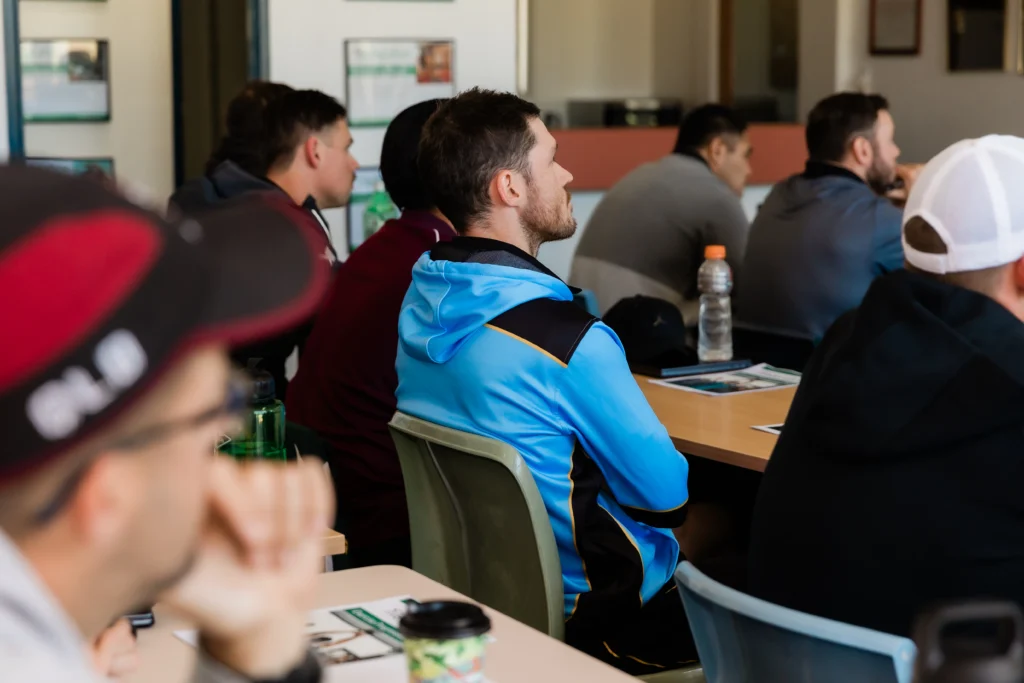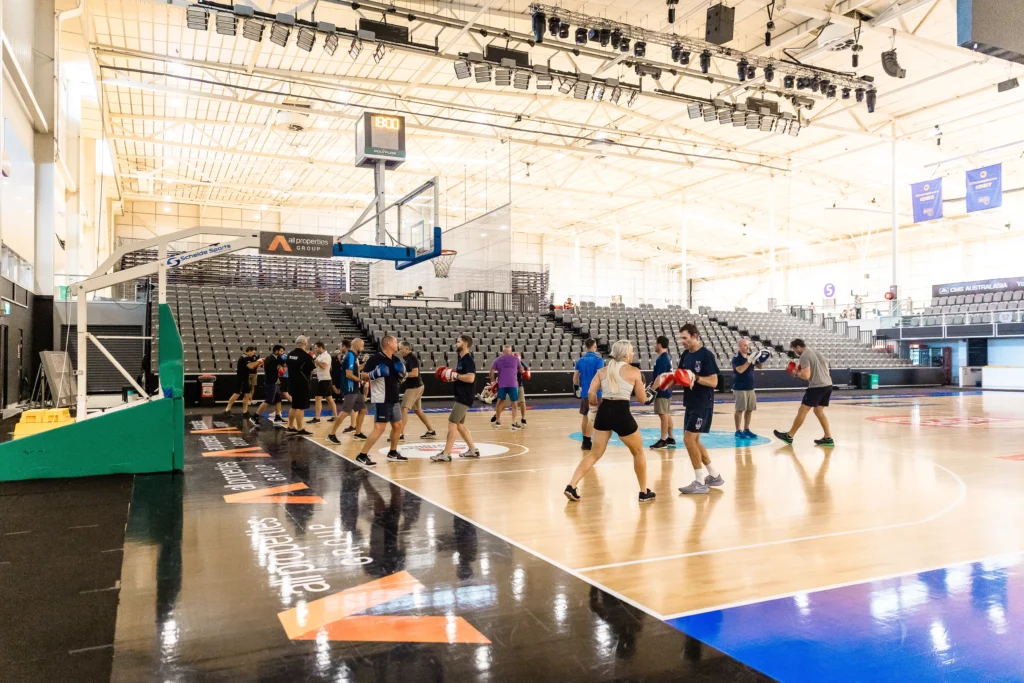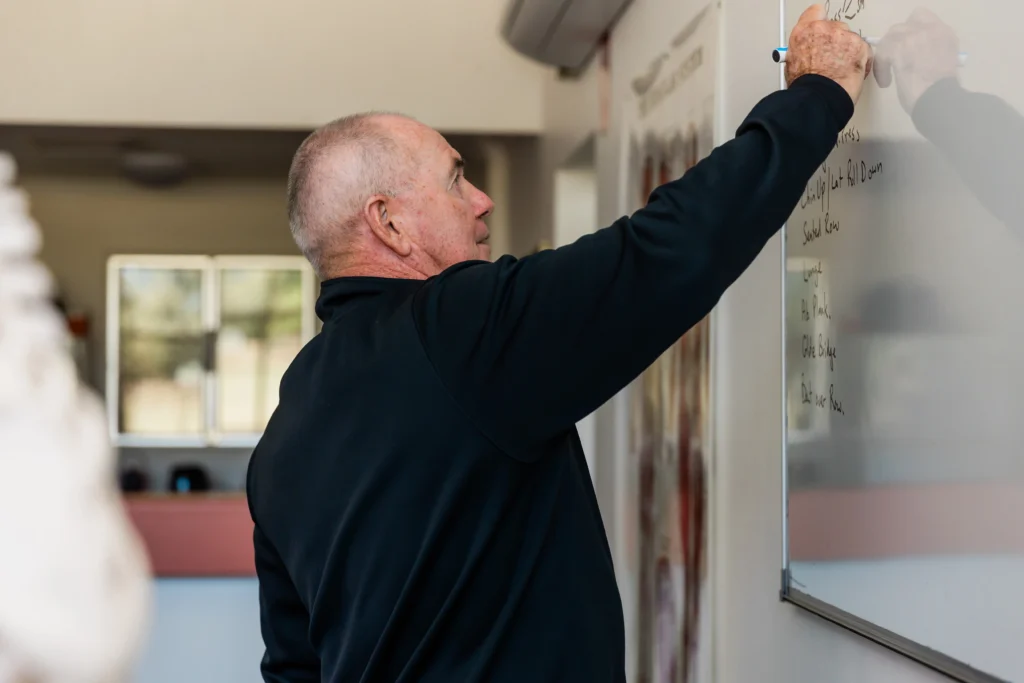In the world of sports, the successful application of business principles can greatly enhance the development and outcomes of sporting programs. Through personal experiences and observing renowned coaches, it becomes clear that integrating business strategies into sports coaching leads to remarkable achievements. This approach is exemplified by the success story of the 1999 World Cup-winning Wallabies, coached by Rod Macqueen. Understanding this synergy is crucial for those pursuing personal training courses and qualifications like Fit Education’s Diploma of Sport.

Diverse Coaching Styles in Sports
Throughout my career, I’ve had the privilege of working with numerous coaches across various sports and levels, from local C and D teams to world champions. One striking observation is the vast diversity in coaching styles and methods. Each coach had a unique approach, yet some, like Rod Macqueen, employed business models to achieve outstanding results. This blend of business awareness and sports expertise is crucial for anyone pursuing personal training courses.
The Intense Approach of Tommy Raudonikis
My initial exposure to professional sports was with the Ipswich Jets, under the legendary Tommy Raudonikis. Known for his intense and no-nonsense coaching style, Tommy’s pre-match routines were infamous for their intensity. His approach, rooted in his playing days with the West Magpies, demanded nothing short of 100% effort and a win-at-all-costs mentality.
One memorable incident involved Tommy slapping the team captain before a match, believing the captain needed to set a better example. Such tactics, though extreme, underscored his relentless drive for success. Winning often resulted in celebratory parties, while losing, especially due to perceived lack of effort, invited Tommy’s ire. This intense environment taught me the importance of unwavering commitment and the psychological aspects of motivating a team.
In this high-pressure atmosphere, players learned to push their limits and embody a never-give-up attitude. This kind of rigorous environment might seem harsh, but it instilled a level of resilience and determination that is often necessary for success in both sports and business.
Wayne Bennett: The Methodical Planner
In contrast, Wayne Bennett, another coaching legend, exhibited a more methodical and strategic approach. Known for his disdain for unnecessary meetings, Wayne focused on meticulous planning and effective delegation. His philosophy, encapsulated in the phrase “winners have parties, losers have meetings,” highlighted his belief in action over discussion.
Wayne’s success as a coach stemmed from his ability to plan meticulously and communicate efficiently. He trusted his staff to perform their roles without micromanagement, intervening only when necessary. This approach not only empowered his team but also ensured that players received the attention and guidance they needed to excel. By prioritising strategic planning and delegating tasks effectively, Wayne created an environment where everyone knew their responsibilities and worked towards common goals with clarity and purpose.
Rod Macqueen: The Businessman-Coach
Rod Macqueen’s approach was a game-changer, blending his business awareness with sports coaching. Before delving into full-time coaching, Rod had already established himself as a successful businessman, running a marketing and display business. This background profoundly influenced his coaching methods, particularly during his tenure with the Wallabies.
Rod’s appointment as the inaugural coach of the ACT Brumbies in 1996 marked the beginning of a revolutionary coaching era. He transformed a group of overlooked players into formidable contenders, leading them to the finals within two years. His success continued with the Wallabies, culminating in their World Cup victory in 1999. Rod’s business mindset allowed him to bring a structured and analytical approach to coaching, which proved incredibly effective.

Implementing Business Principles in Coaching
Rod’s business-oriented approach to coaching involved daily staff meetings, where each coach was treated as a department head with a specific portfolio. This structure required each coach to develop a business model for their area of expertise. For instance, my responsibilities included making the players leaner, fitter, stronger, more powerful, and more mobile. These Key Performance Indicators (KPIs) were critical to our success.
Every Friday, whether in camp or on tour, we conducted business meetings where players and coaches completed SWOT analysis to identify strengths, weaknesses, opportunities, and threats. This self-assessment and strategic planning process ensured continuous improvement and alignment with our goals. The application of the Pareto principle, focusing on the key 20% that would impact 80% of outcomes, further streamlined our efforts.
The Pareto principle was particularly effective in sports, where focusing on core strengths and addressing key weaknesses could lead to significant improvements in performance. This principle helped us prioritise our efforts and resources on the most impactful areas, leading to substantial gains in our overall performance.
The Results Speak for Themselves
The results of this business-driven approach were nothing short of spectacular. By 2000, the Wallabies held every conceivable cup, including the prestigious Rugby World Cup. Rod’s coaching success rate stood at an impressive 79%, with 34 wins out of 43 tests. This achievement underscored the effectiveness of integrating business principles into sports coaching.
The success of the Wallabies under Rod Macqueen’s leadership was a testament to the power of combining business cleverness with sports expertise. This approach not only brought immediate success but also set a foundation for sustained excellence. The strategic planning, effective delegation, and continuous improvement processes ensured that the team remained competitive and successful over the long term.

Learning from the Best: Fit Education’s Courses
For aspiring sports professionals, understanding the synergy between business and sports is crucial. Fit Education offers comprehensive courses like the Diploma of Sports, designed to equip students with the knowledge and skills needed to excel in the sporting field. This course covers various topics, including sport coaching, sport development, sport leadership, sport psychology, and integrity and ethics in sport. Fit Education prepares students to develop successful sporting programs and achieve exceptional outcomes.
The Diploma of Sports delves into advanced coaching techniques, sports science, and the psychological aspects of athlete development, ensuring a well-rounded education that combines theory and practical application.
The fusion of business principles with sports coaching has proven to be a powerful formula for success. Coaches like Rod Macqueen have demonstrated that sound business practices can significantly enhance the performance and outcomes of sports teams. For those pursuing a career in sports, understanding and applying these principles through premier personal training courses and qualifications like the Diploma of Sports can pave the way for remarkable achievements. Embracing this approach will not only develop better sporting programs but also foster a new generation of successful sports professionals.
Incorporating business principles into sports coaching can transform good teams into great ones. By adopting strategic planning, effective delegation, continuous improvement, and a focus on core strengths, coaches can lead their teams to sustained success. For aspiring sports professionals, mastering these principles through comprehensive education and training programs is key to achieving excellence in both business and sports.
Written by Steve Nance.
Steve has worked extensively in professional sports both in Australia, France and England. He has been in charge of the physical preparation at several high profile organisations including:
Brisbane Broncos, Nth Queensland Cowboys, ASM Rugby France, Bordeaux Begles France,
Queensland Reds, Fulham FC England and Leeds Carnegie Rugby England. A highlight was being on the coaching staff for the 1999 Rugby World Cup when Australia won.
Steve teaches the Cert III and IV in Fitness on campus courses and works at the Fit Lab Toowoomba, in charge of a large staff incorporating full time Exercise Scientists, Exercise Physiologists, Strength and Conditioning coaches and other allied Health Professionals.
